Glamur benefits from an Expert forum advice. European and international experts, with no direct responsibility in the project, are consulted during and among project meetings to enlarge the vision of the project and to validate and enhance the quality of the research. The Advisory Board composition covers different scientific and socio-economic areas than those available in Glamur partnership.
Wageningen Universiteit
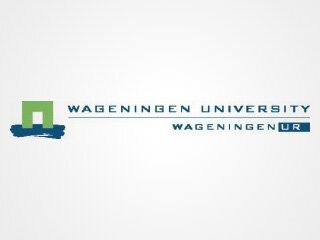 Wageningen UR (University & Research centre) is a collaboration between Wageningen University and the specialised research institutes of the DLO foundation. Its mission is ‘To explore the potential of nature to improve the quality of life’. A staff of 6,500 and 10,000 students from over 100 countries work everywhere around the world in the domain of healthy food and living environment for governments and the business community-at-large. The domain of Wageningen UR consists of three related core areas: a) Food and food production, b) Living environment, and c) Health, lifestyle and livelihood.
Wageningen UR (University & Research centre) is a collaboration between Wageningen University and the specialised research institutes of the DLO foundation. Its mission is ‘To explore the potential of nature to improve the quality of life’. A staff of 6,500 and 10,000 students from over 100 countries work everywhere around the world in the domain of healthy food and living environment for governments and the business community-at-large. The domain of Wageningen UR consists of three related core areas: a) Food and food production, b) Living environment, and c) Health, lifestyle and livelihood.
The section Sociology and Anthropology Development (in which the chairgroups Rural Sociology and Rural development Sociology cooperate) studies the dynamics of rural and regional development processes all over the world and is a leading research group in rural social studies. Specific attention is paid to the different levels at which transformation processes occur and are shaped, as well as to the different actors and institutions involved. Characteristic is the comparative and empirically driven research approach. An important feature of its research is the multidisciplinary approach, the close cooperation with (organisations of) stakeholders.
Centro Ricerche Produzioni Animali – C.R.P.A. S.P.A.
 The Research Centre on Animal Production (CRPA), founded in 1972, is a research and consulting organisation active in the improvement of the livestock sector and the related agro-food industry by means of research, studies, dissemination and technology transfer actions. Public institutions, farmers unions, and food industry organisations are shareholders of the joint-stock holding company. CRPA is specialised in practical and applied research in the livestock sector and supply chains and focused in particular on the application of innovative production techniques in farms and in the processing industry. Next to research an important and incisive activity of CRPA is the transfer of knowledge to the livestock sector by means of the organisation of seminars and conferences as well as the publication of reference books, articles in the livestock sector press and Internet.
The Research Centre on Animal Production (CRPA), founded in 1972, is a research and consulting organisation active in the improvement of the livestock sector and the related agro-food industry by means of research, studies, dissemination and technology transfer actions. Public institutions, farmers unions, and food industry organisations are shareholders of the joint-stock holding company. CRPA is specialised in practical and applied research in the livestock sector and supply chains and focused in particular on the application of innovative production techniques in farms and in the processing industry. Next to research an important and incisive activity of CRPA is the transfer of knowledge to the livestock sector by means of the organisation of seminars and conferences as well as the publication of reference books, articles in the livestock sector press and Internet.
Contact persons
Lead researcher: Dr.Kees de Roest – [email protected]
Contracted researcher: Prof. Giovanni Belletti – University of Florence – [email protected]
Administration and finance: Mrs. Roberta Vezzosi – [email protected]
City University London
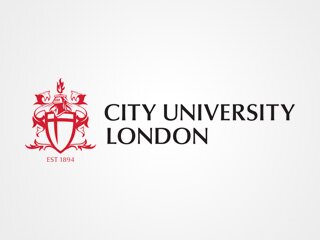 The City University London’s Centre for Food Policy researches and educates on how policy-making processes work and how they both reflect and shape the nature of food supply and consumption. It is interested in the policy place of food in society and the impact on health, environment, social justice and economy.
The City University London’s Centre for Food Policy researches and educates on how policy-making processes work and how they both reflect and shape the nature of food supply and consumption. It is interested in the policy place of food in society and the impact on health, environment, social justice and economy.
Contact persons
Lead researcher: Prof. David Barling – [email protected]
Contracted researcher: Dr. Julie Smith – [email protected]
Katholieke Universiteit Leuven
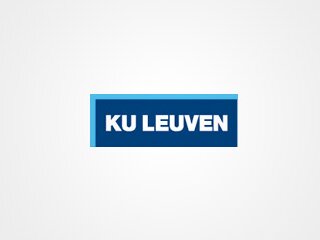 The Catholic Univeristy of Leuven’s Division of Bioeconomics has three main research lines:
The Catholic Univeristy of Leuven’s Division of Bioeconomics has three main research lines:
# poverty reduction and economic growth in poor countries and the sustainable
and efficient use of natural resource to realize pro-poor growth;
# the transition towards a sustainable bio-based economy;
# the link between economic and ecological models by refining functions of socio-economic drivers that are used to model resource use change and changes in ecosystem services, and how institutions (policy decisions and regulations) affect this link.
Contact persons
Lead researcher: Prof. Erik Mathijs – [email protected]
Contracted researcher: Tessa Avermaete –
Forschungsinstitut Fur Biologischenlandbau Stiftung
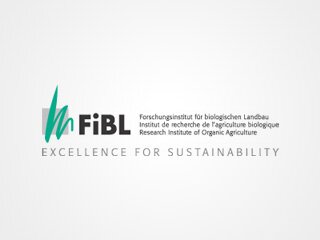 The Research Institute of Organic Agriculture (FiBL) was founded in 1973 and is situated in Frick since 1997. It is one of the world’s leading research and information centres for organic agriculture and employs over 135 experts. The close links between different fields of research and the rapid transfer of knowledge from research to advisory work and agricultural practice are FiBL’s strengths. Outside Switzerland the Institute’s competence is also sought after, and FiBL is involved in numerous international projects – not only in research, consultancy and training but also in development cooperation.
The Research Institute of Organic Agriculture (FiBL) was founded in 1973 and is situated in Frick since 1997. It is one of the world’s leading research and information centres for organic agriculture and employs over 135 experts. The close links between different fields of research and the rapid transfer of knowledge from research to advisory work and agricultural practice are FiBL’s strengths. Outside Switzerland the Institute’s competence is also sought after, and FiBL is involved in numerous international projects – not only in research, consultancy and training but also in development cooperation.
Contact persons
Lead researcher: Dr. Barjolle Dominique – [email protected]
Institut National De La Recherche Agronomique
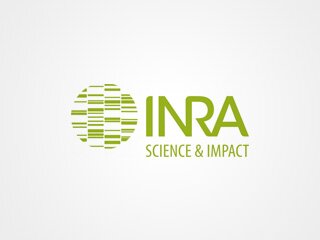 The French National Institute for Agricultural Research (INRA) produces scientific knowledge and works for economic and social innovation in the areas of food, agriculture and the environment.
The French National Institute for Agricultural Research (INRA) produces scientific knowledge and works for economic and social innovation in the areas of food, agriculture and the environment.
Contact persons
Lead researcher: Dr. Jean Marc Touzard – [email protected]
Universitat Autonoma De Barcelona
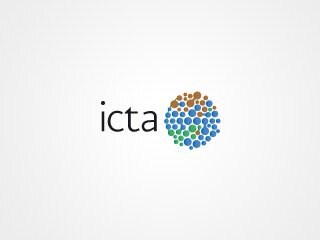 The Universitat Autònoma de Barcelona (UAB) is one of the biggest public universities in Spain and it is internationally recognised for its research of quality and innovative. The range of research activities in UAB is very ample, which highlights the multidisciplinary character of this university.
The Universitat Autònoma de Barcelona (UAB) is one of the biggest public universities in Spain and it is internationally recognised for its research of quality and innovative. The range of research activities in UAB is very ample, which highlights the multidisciplinary character of this university.
The Institute of Environmental Science and Technology (ICTA) promotes and carries out research, and trains researchers who can contribute to our understanding of the environment and meet the challenges posed by the interaction between society and the environment. The Integrated Assessment: Sociology, Technology and the Environment (IASTE) research group is hosted by ICTA-UAB and supported by the SGR program of the Catalan Government.The IASTE research group is capable of delivering scientific output strongly needed for dealing with the current sustainability predicament: an alternative narrative and quantitative representation of the interaction socio-economic systems/nature.The IASTE research group is able to deal with a broad spectrum of issues:
# Nexus food, energy, water, land and the link to environmental accounting;
# Checking the viability, desirability, feasibility of scenarios (e.g.decarbonization);
# Analysis of the quality of alternative energy sources and energy systems;
# Quality assurance on the production and consumption of quantitative information for decision making – practical applications.
Contact persons
Lead researcher: Mario Giampietro – [email protected]
Contact: Tiziano Gomiero – [email protected]
Nodibinajums Baltic Studies Centre
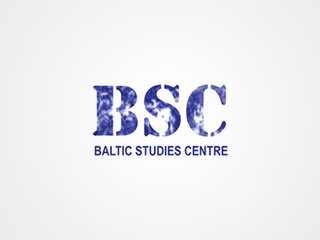 The Baltic Studies Centre (BSC) is an NGO established for the purpose of research and project management in the field of sustainable rural and regional development. As independent research organization BSC operates since 1991 and has carried out over 40 research projects including 12 EU Framework Programme projects. The areas of BSC expertise include: regional and rural development, sustainable agriculture, food supply chains, rural innovation, agricultural knowledge and innovation systems, organic farming, multifunctionality of agriculture, collective marketing, community development, rural partnerships, and public policy analysis.
The Baltic Studies Centre (BSC) is an NGO established for the purpose of research and project management in the field of sustainable rural and regional development. As independent research organization BSC operates since 1991 and has carried out over 40 research projects including 12 EU Framework Programme projects. The areas of BSC expertise include: regional and rural development, sustainable agriculture, food supply chains, rural innovation, agricultural knowledge and innovation systems, organic farming, multifunctionality of agriculture, collective marketing, community development, rural partnerships, and public policy analysis.
Contact persons
Lead researcher: Dr. Talis Tisenkopfs – [email protected]
Aalborg Universitet
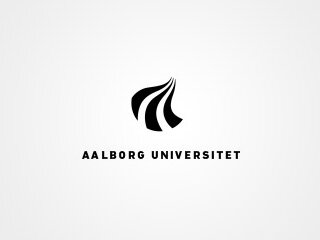 Aalborg University has a focus on interdisciplinary, inter-faculty studies, and a pedagogical structure based on problem-centred educational and research relevance.
Aalborg University has a focus on interdisciplinary, inter-faculty studies, and a pedagogical structure based on problem-centred educational and research relevance.
Contact persons
Lead researcher: Dr. Armando Perez-Cueto – [email protected]
Ekonomski Fakultet, Univerzitet U Beogradu
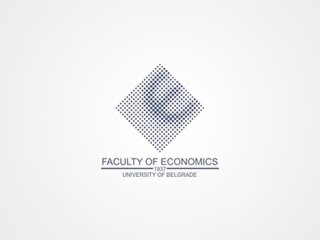 The Faculty of Economics of the Belgrade University was founded in 1937 as the Graduate School for Economy and Trade. More than 1000 students are enrolled each year at the undergraduate studies and the teaching process is managed by 132 professors and associates, together with 25 foreign visiting professors.
The Faculty of Economics of the Belgrade University was founded in 1937 as the Graduate School for Economy and Trade. More than 1000 students are enrolled each year at the undergraduate studies and the teaching process is managed by 132 professors and associates, together with 25 foreign visiting professors.
Its primary objective is to disseminate knowledge and develop scientific disciplines required by the contemporary economic development and market economy.
Contact persons
Lead researcher: Žaklina Stojanovic – [email protected]
International Institute For Environment And Development
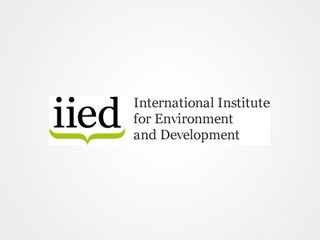 IIED is an international development and environment policy research organisation. Founded in 1971 by economist Barbara Ward, who forged the concept and cause of sustainable development, IIED works with partners on five continents, building bridges between policy and practice, rich and poor communities, the government and private sector, and across diverse interest groups. IIED contributes to many international policy processes and frameworks, including the Intergovernmental Panel on Climate Change, the Millennium Ecosystem Assessment and the UN conventions on climate change and biological diversity.
IIED is an international development and environment policy research organisation. Founded in 1971 by economist Barbara Ward, who forged the concept and cause of sustainable development, IIED works with partners on five continents, building bridges between policy and practice, rich and poor communities, the government and private sector, and across diverse interest groups. IIED contributes to many international policy processes and frameworks, including the Intergovernmental Panel on Climate Change, the Millennium Ecosystem Assessment and the UN conventions on climate change and biological diversity.
Contact persons
Lead researcher: William Vorley – [email protected]
Fondazione Italiana Per La Ricerca In Agricoltura Biologica E Biodinamica
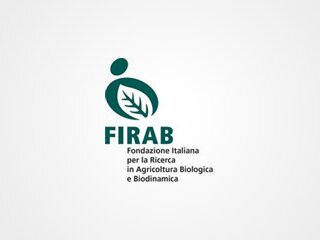 The Fondazione Italiana per la Ricerca in Agricoltura Biologica e Biodinamica was set up in 2007 by organic and biodynamic farmer, environmental and labor associations. FIRAB promotes applied research in low input farming through a participatory approach and operates technical and scientific dissemination. FIRAB carries out economic surveys on Italian organic produce export, organic product prices in different distribution channels and economic impact assessments following market shocks.
The Fondazione Italiana per la Ricerca in Agricoltura Biologica e Biodinamica was set up in 2007 by organic and biodynamic farmer, environmental and labor associations. FIRAB promotes applied research in low input farming through a participatory approach and operates technical and scientific dissemination. FIRAB carries out economic surveys on Italian organic produce export, organic product prices in different distribution channels and economic impact assessments following market shocks.
FIRAB is the EU FP7 GLAMUR project scientific coordinator and dissemination coordinator.
Contact persons
Lead researcher: Luca Colombo – [email protected]
Clm Onderzoek En Advies Bv
 CLM is an independent consultancy in the Netherlands established in 1982 working in the field of sustainable food, farming and rural development. CLM carries out research and advises government at all levels, from local authorities to the European Union, as well as companies and non-profit organisations. Our expertise is rooted in professional practice and supported by our network of 250 farmers.
CLM is an independent consultancy in the Netherlands established in 1982 working in the field of sustainable food, farming and rural development. CLM carries out research and advises government at all levels, from local authorities to the European Union, as well as companies and non-profit organisations. Our expertise is rooted in professional practice and supported by our network of 250 farmers.
Contact person
Lead researcher: Dr. Carin Rougoor – [email protected]
Countryside and Community Research Institute (CCRI)
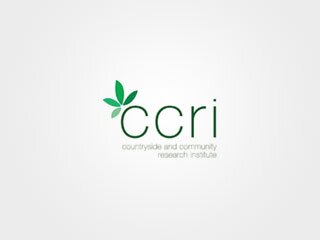 The Countryside and Community Research Institute (CCRI), is a unique partnership between the University of Gloucestershire, the Royal Agricultural University and Hartpury College. It is the largest specialist rural research centre in the UK, having expertise in all aspects of research in policy and planning for the countryside and the environment of the UK, Europe and further afield.
The Countryside and Community Research Institute (CCRI), is a unique partnership between the University of Gloucestershire, the Royal Agricultural University and Hartpury College. It is the largest specialist rural research centre in the UK, having expertise in all aspects of research in policy and planning for the countryside and the environment of the UK, Europe and further afield.
Contact persons
Lead researcher: Dr. James Kirwan – [email protected]
Administration and finance: Mr. Chris Rayfield – [email protected]
View Glamur partners on a larger map





